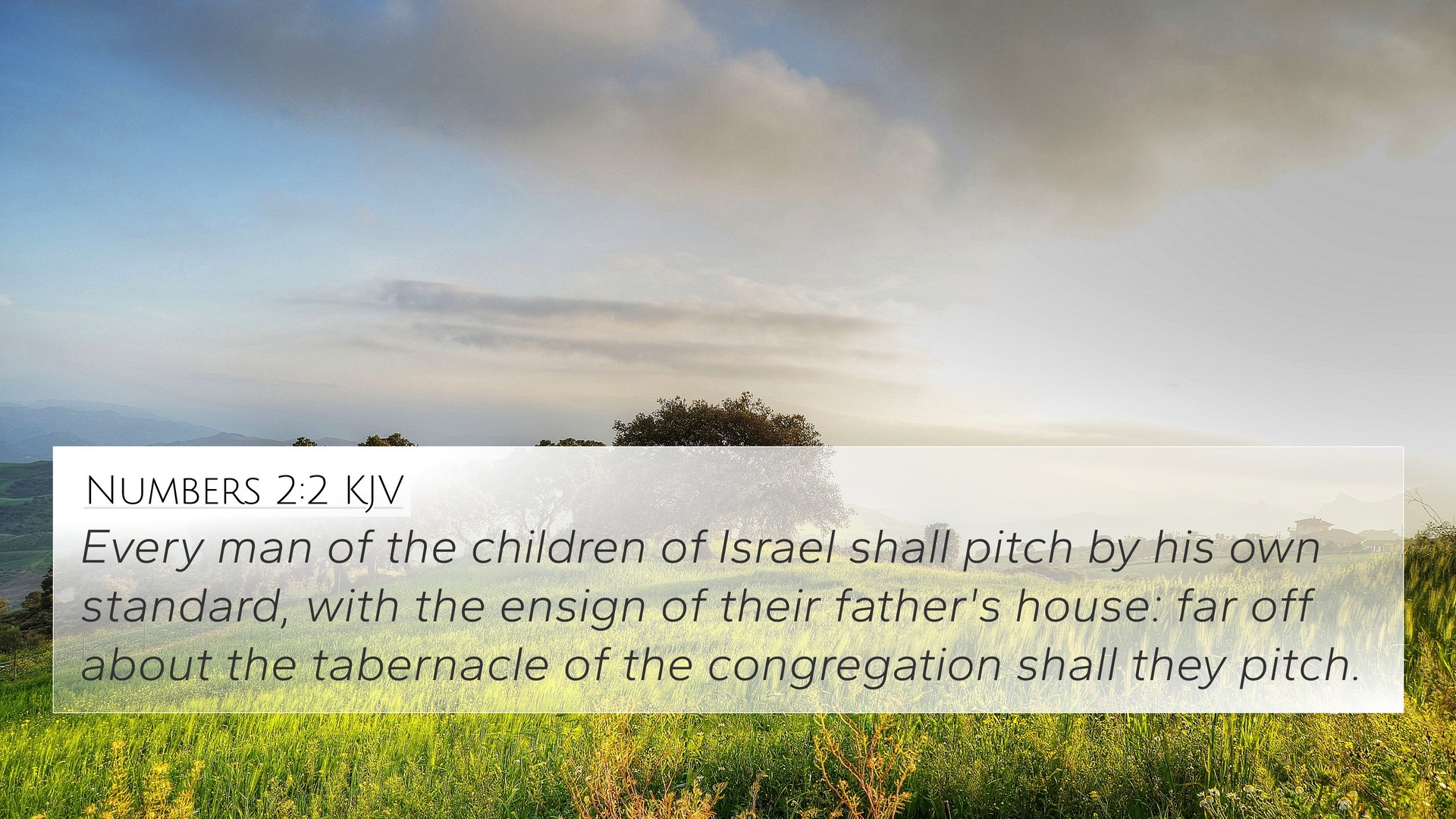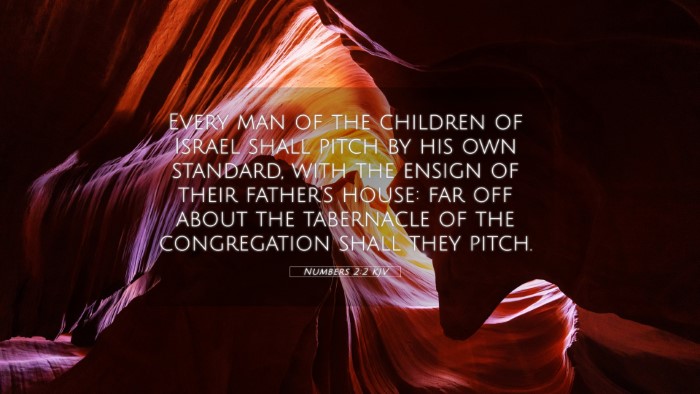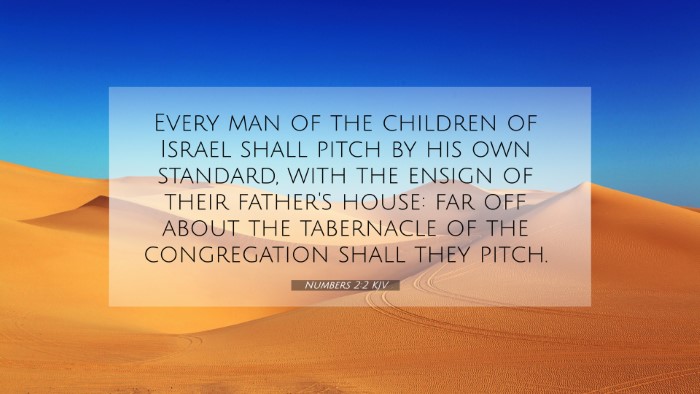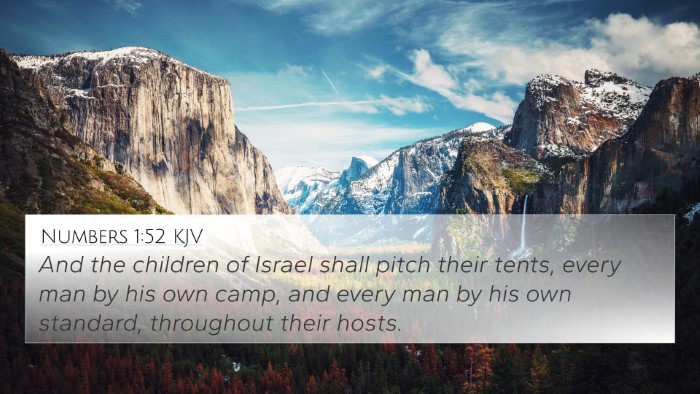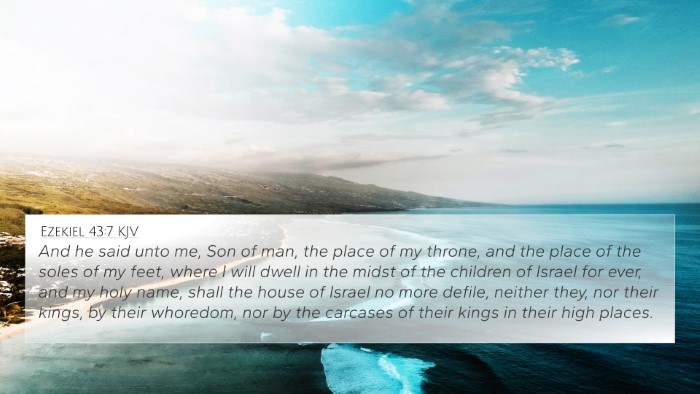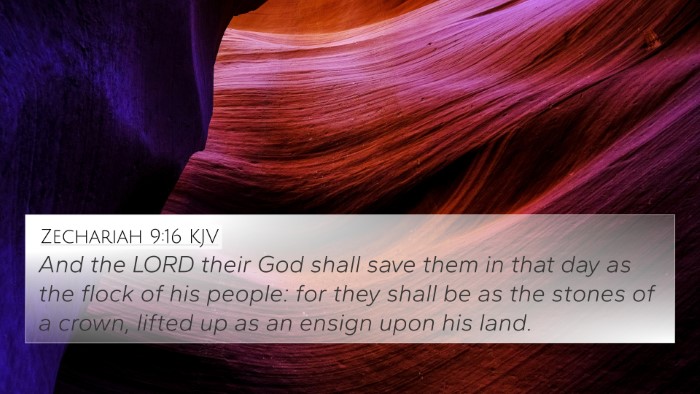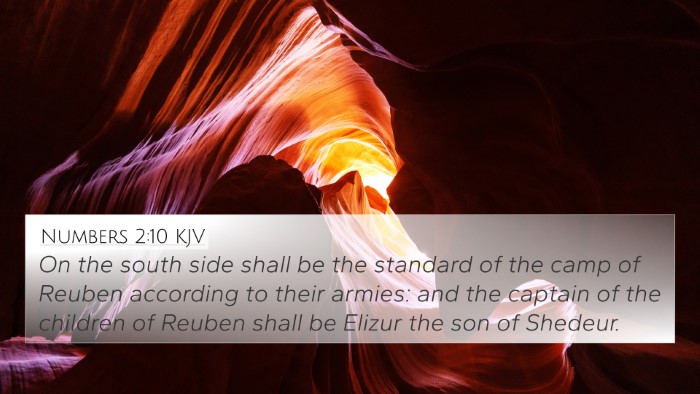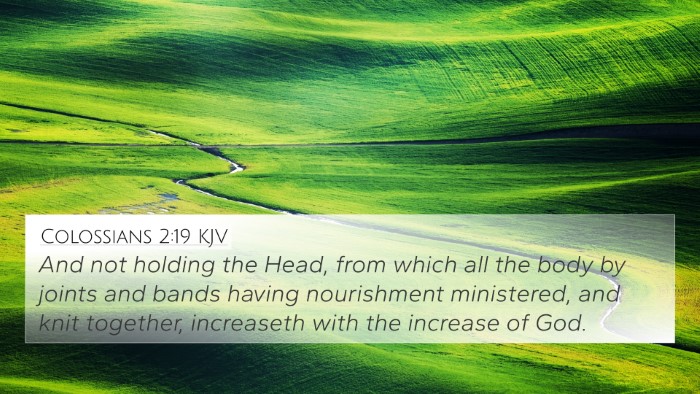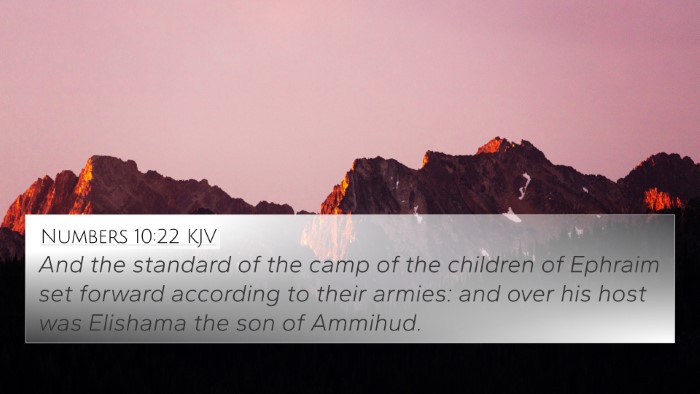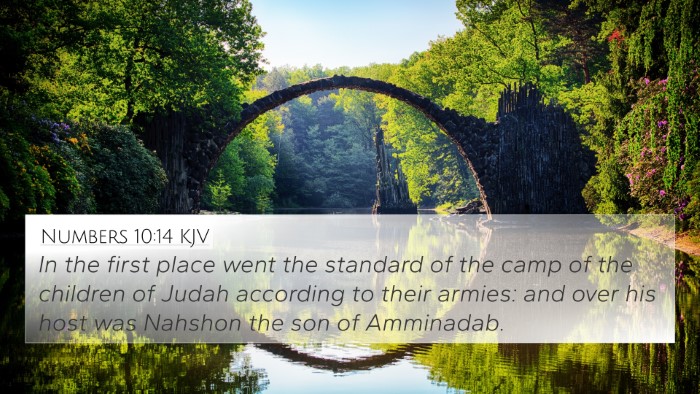Understanding Numbers 2:2
Numbers 2:2 states: "Every man of the children of Israel shall pitch by his own standard, with the ensign of their father's house: far off about the tabernacle of the congregation shall they pitch."
This verse outlines the organization of the Israelite camp during their journey through the wilderness. It emphasizes the importance of structure, identity, and community within the larger framework of their pilgrimage.
Summary of Insights from Public Domain Commentaries
In examining Numbers 2:2, several key themes and interpretations emerge from the insights provided by notable biblical commentators including Matthew Henry, Albert Barnes, and Adam Clarke:
1. Divine Order and Structure
Matthew Henry highlights that God's instruction for the Israelites to camp by their standards demonstrates divine order. Each tribe was given a specific place, showcasing that there is a place for everyone in God's plan.
2. Identity and Heritage
Albert Barnes emphasizes the significance of "the ensign of their father's house," indicating that the identities of the tribes are rooted in their ancestral heritage. This connection to their forefathers fosters a sense of unity and purpose within the Israelite community.
3. Symbolism of the Tabernacle
Adam Clarke discusses the placement of the tribes around the tabernacle, which signifies God's presence among His people. The tabernacle represents a central point of worship and acts as a reminder of God's covenant with Israel.
Related Bible Cross-References
- Exodus 12:3 - Instructions for the Passover reinforce the importance of tribal identity.
- Exodus 25:8 - God commands that a sanctuary be made for Him, establishing His dwelling among the people.
- Deuteronomy 23:14 - The camp is holy, and God's presence requires a certain order and reverence.
- Joshua 1:14 - The tribes are organized as they prepare to enter the Promised Land.
- Psalms 78:68-72 - God chose the tribe of Judah and established His people through a lineage.
- 1 Corinthians 14:40 - The principle of order in all things, reflecting God's nature.
- Hebrews 8:5 - The earthly tabernacle is a shadow of the heavenly one, underscoring the importance of structure.
- Revelation 21:12 - The New Jerusalem has gates named after the tribes of Israel, symbolizing their enduring identity.
- Genesis 49:28 - The blessings of Jacob to his sons, rooted in tribal significance.
- Matthew 2:6 - The prophecy of Bethlehem as the birthplace of Jesus, linking to the lineage of Judah.
Thematic Connections within the Bible
This verse also invites an exploration of thematic Bible verse connections:
- Identity in Christ: Just as the tribes find their identity in their heritage, New Testament believers are called to find their identity in Christ (Galatians 3:26-29).
- Unity in Diversity: The organization of the tribes symbolizes the unity of believers from diverse backgrounds (1 Corinthians 12:12-13).
- God’s Presence: The placement of the tabernacle emphasizes that God is with His people (Matthew 28:20, "I am with you always").
- Orderliness in Worship: The structured worship in the Old Testament parallels the sacred order followed in the New Testament church (Acts 2:42).
Conclusion
In summary, Numbers 2:2 conveys the significance of God's divine order, the importance of tribal identity, and the symbolism of the tabernacle in establishing a community grounded in God's presence. Understanding this verse benefits from comparative Bible verse analysis, drawing connections throughout Scripture that reinforce the overarching narrative of God's relationship with His people.
For Further Study
For those interested in delving deeper into cross-referencing Biblical texts, various tools and resources can enhance understanding, including:
- Bible concordance for finding related verses.
- Structured Bible study guides that facilitate cross-referencing.
- Online resources for discovering thematic connections across scripture.
- Books focused on comprehensive Bible verse parallels.
By exploring these connections, readers can gain a more thorough understanding of the scriptures and their implications for faith and practice.
